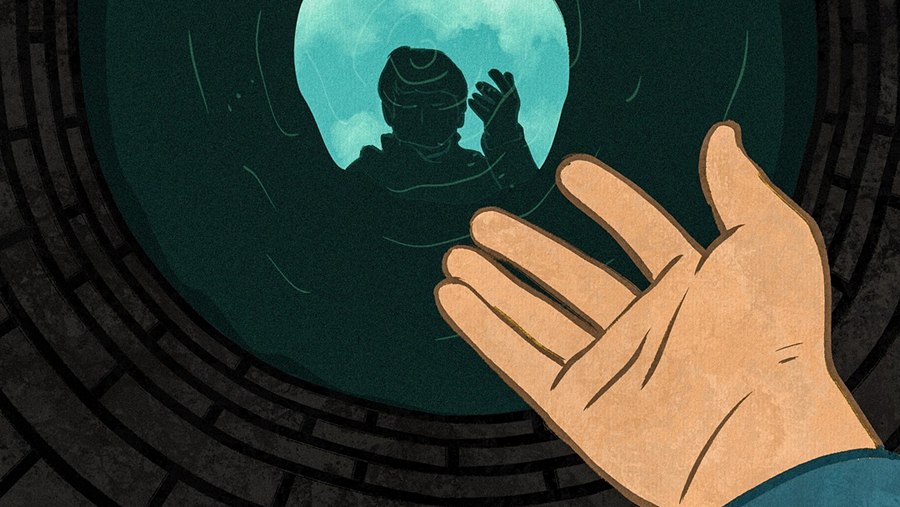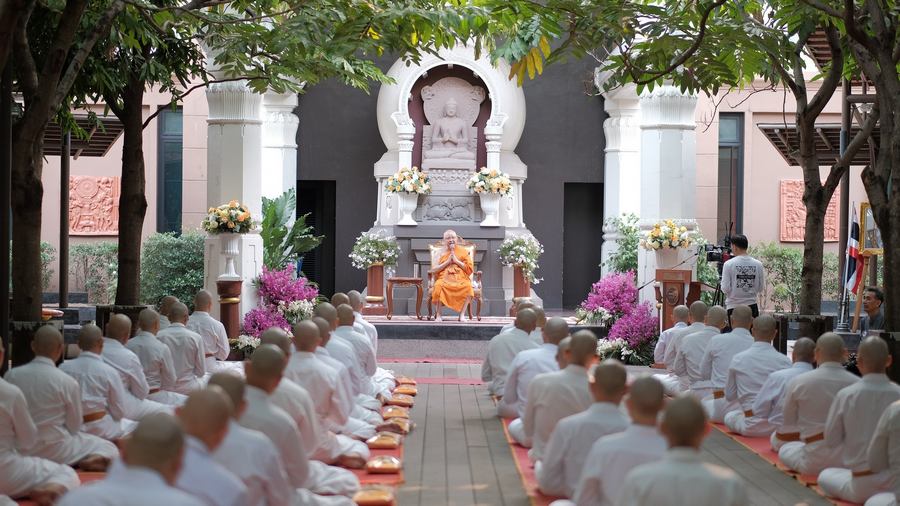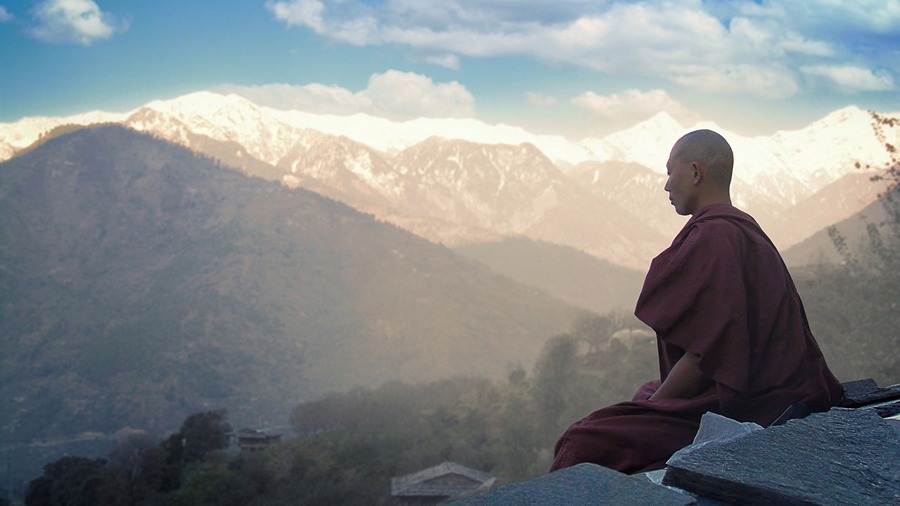On one occasion the Blessed One was staying among the Sakyans near Kapilavatthu in the Banyan Park. Then Nandiya the Sakyan went to the Blessed One and, on arrival, having bowed down to him, sat to one side. As he was sitting there he said to the Blessed One, “Lord, the disciple of the noble ones in whom the factors of stream entry are altogether & in every way lacking: Is he called a disciple of the noble ones who lives heedlessly?”
“Nandiya, the person in whom the factors of stream entry are altogether & in every way lacking I call an outsider, one who stands in the faction of the run-of-the-mill. But as to how a disciple of the noble ones dwells in heedlessness and dwells in heedfulness, listen well and pay attention, I will speak.”
“As you say, lord,” Nandiya the Sakyan responded to the Blessed One.
The Blessed One said, “And how, Nandiya, does a disciple of the noble ones dwell in heedlessness? There is the case where a disciple of the noble ones is endowed with verified confidence in the Awakened One: ‘Indeed, the Blessed One is worthy & rightly self-awakened, consummate in clear-knowing & conduct, well-gone, an expert with regard to the cosmos, unexcelled trainer of people fit to be tamed, teacher of devas & human beings, awakened, blessed.’ Content with that verified confidence in the Awakened One, he doesn’t exert himself further in solitude by day or seclusion by night. For him, dwelling thus heedlessly, there is no joy. There being no joy, there is no rapture. There being no rapture, there is no calm. There being no calm, he dwells in pain. When pained, the mind doesn’t become concentrated. When the mind is unconcentrated, phenomena don’t become manifest. When phenomena aren’t manifest, he is reckoned simply as one who dwells in heedlessness.
“And further, the disciple of the noble ones is endowed with verified confidence in the Dhamma: ‘The Dhamma is well taught by the Blessed One, to be seen here & now, timeless, inviting verification, pertinent, to be experienced by the observant for themselves.’ Content with that verified confidence in the Dhamma, he doesn’t exert himself further in solitude by day or seclusion by night. For him, dwelling thus heedlessly, there is no joy. There being no joy, there is no rapture. There being no rapture, there is no calm. There being no calm, he dwells in pain. When pained, the mind doesn’t become centered. When the mind is uncentered, phenomena don’t become manifest. When phenomena aren’t manifest, he is reckoned simply as one who dwells in heedlessness.
“And further, the disciple of the noble ones is endowed with verified confidence in the Saṅgha: ‘The Saṅgha of the Blessed One’s disciples who have practiced well… who have practiced straight-forwardly… who have practiced methodically… who have practiced masterfully—in other words, the four types of noble disciples when taken as pairs, the eight when taken as individual types—they are the Saṅgha of the Blessed One’s disciples: deserving of gifts, deserving of hospitality, deserving of offerings, deserving of respect, the incomparable field of merit for the world.’ Content with that verified confidence in the Saṅgha, he doesn’t exert himself further in solitude by day or seclusion by night. For him, dwelling thus heedlessly, there is no joy. There being no joy, there is no rapture. There being no rapture, there is no calm. There being no calm, he dwells in pain. When pained, the mind doesn’t become centered. When the mind is uncentered, phenomena don’t become manifest. When phenomena aren’t manifest, he is reckoned simply as one who dwells in heedlessness.
“And further, the disciple of the noble ones is endowed with virtues that are appealing to the noble ones: untorn, unbroken, unspotted, unsplattered, liberating, praised by the observant, ungrasped at, leading to concentration. Content with those virtues pleasing to the noble ones, he doesn’t exert himself further in solitude by day or seclusion by night. For him, dwelling thus heedlessly, there is no joy. There being no joy, there is no rapture. There being no rapture, there is no calm. There being no calm, he dwells in pain. When pained, the mind doesn’t become centered. When the mind is uncentered, phenomena don’t become manifest. When phenomena aren’t manifest, he is reckoned simply as one who dwells in heedlessness.
“This is how a disciple of the noble ones dwells in heedlessness.
“And how, Nandiya, does a disciple of the noble ones dwell in heedfulness? There is the case where a disciple of the noble ones is endowed with verified confidence in the Awakened One.… Not content with that verified confidence in the Awakened One, he exerts himself further in solitude by day & seclusion by night. For him, dwelling thus heedfully, joy is born. In one who has joy, rapture is born. The body of one enraptured at heart grows calm. When the body is calm, one feels pleasure. Feeling pleasure, the mind becomes centered. When the mind is centered, phenomena become manifest. When phenomena are manifest, he is reckoned as one who dwells in heedfulness.
“And further, the disciple of the noble ones is endowed with verified confidence in the Dhamma.… verified confidence in the Saṅgha… virtues that are appealing to the noble ones: untorn, unbroken, unspotted, unsplattered, liberating, praised by the observant, ungrasped at, leading to concentration. Not content with those virtues pleasing to the noble ones, he exerts himself further in solitude by day & seclusion by night. For him, dwelling thus heedfully, joy is born. In one who has joy, rapture is born. The body of one enraptured at heart grows calm. When the body is calm, one feels pleasure. Feeling pleasure, the mind becomes centered. When the mind is centered, phenomena become manifest. When phenomena are manifest, he is reckoned as one who dwells in heedfulness.
“This is how a disciple of the noble ones dwells in heedfulness.”
Read this translation of Saṁyutta Nikāya 55.40 Nandiya Sutta. To Nandiya by Bhikkhu Ṭhanissaro on DhammaTalks.org. Or read a different translation on SuttaCentral.net, or SuttaFriends.org.
Or read a translation in Deutsch, Français, Русский, বাংলা, Bahasa Indonesia, 日本語, မြန်မာဘာသာ, Norsk, Português, සිංහල, ไทย, Tiếng Việt, or 汉语. Learn how to find your language.






























